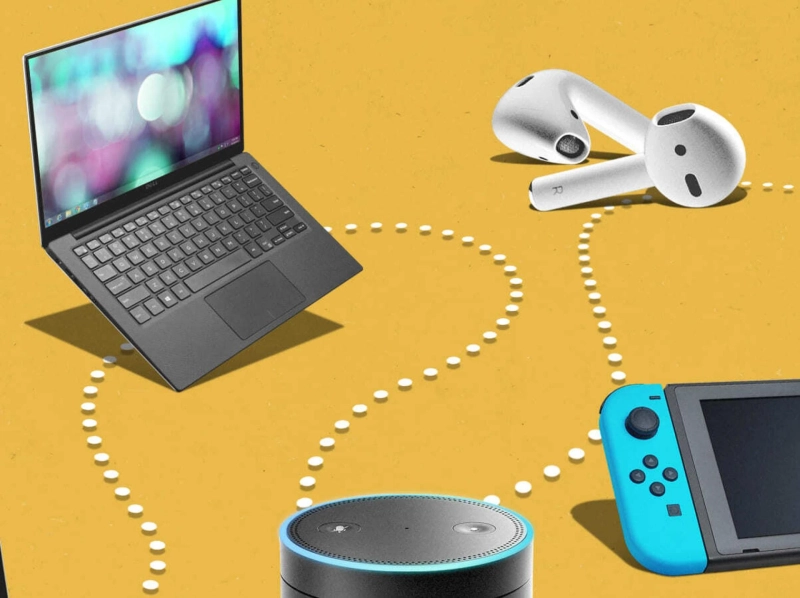Technology is evolving at an unprecedented pace, and staying ahead of the curve can give you a significant advantage. As we move through 2024 and beyond, several key trends are set to shape the future of tech. Here’s a look at the most exciting and transformative trends you need to know about:
Tech enthusiasts, rejoice! Readytion offers a wide range of cutting-edge electronics to enhance your everyday life. We have everything from the newest smartphones and sleek laptops to advanced cameras and drones. Check out Readytion for unbeatable deals and top-quality products. Join the tech revolution with us!
1. Artificial Intelligence and Machine Learning
AI-Powered Innovations: Artificial Intelligence (AI) and Machine Learning (ML) continue to advance, driving innovations across various sectors. From self-learning algorithms that improve over time to AI-driven customer service solutions, these technologies are becoming increasingly integral to everyday life. Key areas to watch include:
- Generative AI: Tools like ChatGPT and DALL-E are transforming content creation by generating text, images, and even video content based on user inputs.
- AI in Healthcare: AI is enhancing diagnostics, personalized medicine, and drug discovery, leading to more efficient and accurate healthcare solutions.
2. Quantum Computing
Breaking Through Computational Limits: Quantum computing promises to revolutionize data processing by leveraging quantum mechanics to perform complex calculations at speeds unimaginable with classical computers. While still in its early stages, quantum computing is expected to impact areas such as cryptography, materials science, and complex problem-solving.
- Advancements in Algorithms: Research is focused on developing quantum algorithms that could solve problems currently intractable for classical computers.
- Commercial Applications: Major tech companies like IBM and Google are working on making quantum computing more accessible for commercial use.
3. 5G and Beyond
Transforming Connectivity: 5G technology is set to enhance connectivity with faster speeds, lower latency, and greater network capacity. This will enable new applications and improve existing ones, including:
- Enhanced Mobile Experiences: Faster download speeds and more reliable connections for mobile users.
- IoT Growth: Improved support for the Internet of Things (IoT) devices, leading to smarter cities and homes.
6G on the Horizon: Research is already underway for 6G technology, which aims to provide even faster speeds and more advanced capabilities, potentially becoming a reality by the 2030s.
4. Augmented Reality (AR) and Virtual Reality (VR)
Immersive Experiences: AR and VR technologies are advancing, providing increasingly immersive experiences in both entertainment and practical applications:
- AR in Everyday Life: Augmented Reality is enhancing navigation, shopping, and remote assistance by overlaying digital information on the real world.
- VR for Training and Entertainment: Virtual Reality is being used for training simulations, virtual tours, and interactive gaming, offering highly engaging and realistic experiences.
5. Blockchain and Decentralized Technologies
Securing Transactions and Data: Blockchain technology is more than just the foundation for cryptocurrencies; it\'s being used to enhance security, transparency, and efficiency in various applications:
- Decentralized Finance (DeFi): Blockchain-based financial services are providing alternatives to traditional banking, offering more accessible and transparent financial solutions.
- Supply Chain Management: Blockchain is improving traceability and reducing fraud in supply chains by providing an immutable record of transactions.
6. Green Tech and Sustainability
Tech for a Greener Planet: As environmental concerns grow, there is a push towards green technology and sustainable practices:
- Renewable Energy Solutions: Innovations in solar, wind, and other renewable energy sources are making sustainable energy more accessible and efficient.
- Energy-Efficient Tech: Advances in technology are focusing on reducing energy consumption and minimizing environmental impact, from energy-efficient devices to sustainable manufacturing practices.
7. Edge Computing
Processing Data Locally: Edge computing involves processing data closer to its source rather than relying on centralized data centers. This reduces latency and improves performance for applications that require real-time processing:
- Smart Devices: Edge computing supports the functionality of smart devices and IoT applications by enabling faster data processing and response times.
- Enhanced Security: By processing data locally, edge computing can improve data security and privacy.
8. Biometric Authentication
Securing Access: Biometric authentication is becoming a standard method for securing devices and systems, offering a higher level of security compared to traditional passwords:
- Fingerprint and Facial Recognition: These technologies are increasingly used for unlocking devices, authorizing transactions, and securing sensitive data.
- Behavioral Biometrics: Emerging technologies are analyzing behavioral patterns, such as typing rhythms and mouse movements, to enhance security.
Conclusion
The future of tech is brimming with exciting developments and transformative trends. From advancements in AI and quantum computing to the rise of 5G, AR/VR, and sustainable technologies, these trends are set to reshape how we live, work, and interact with the world. Staying informed and adaptable to these trends will enable you to leverage new opportunities and remain at the forefront of technological innovation. As we continue to embrace these advancements, the possibilities for the future are boundless.


